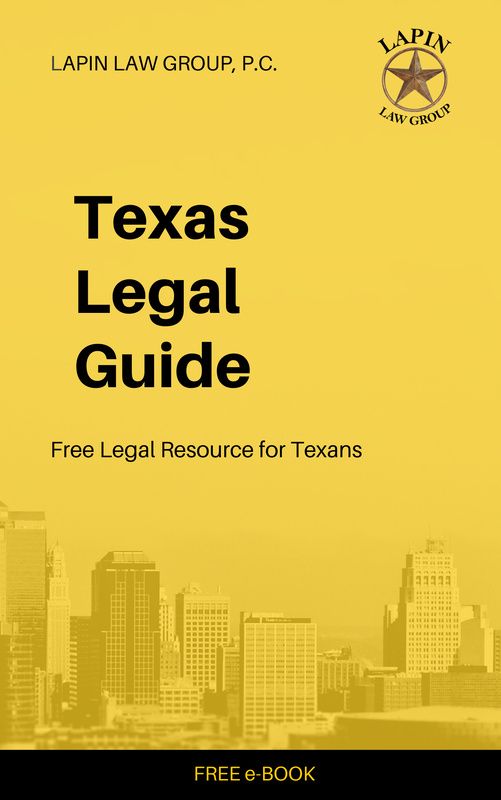Texas has affixed the label of “community property” to its statutory scheme which addresses marital property.
Regarding community property, Texas law states:
Regarding community property, Texas law states:
|
“Community property consists of the property, other than separate property, acquired by either spouse during marriage.” Texas Family Code § 3.002.
|
Texas defines separate property as:
|
“A spouse’s separate property consists of:
(1) the property owned or claimed by the spouse before marriage; (2) the property acquired by the spouse during marriage by gift, devise, or descent; and (3) the recovery for personal injuries sustained by the spouse during marriage, except any recovery for loss of earning capacity during marriage.” Texas Family Code § 3.001. |
Texas divorce courts have been given extremely broad discretion when dividing community property during a divorce. All that is required is that the court do what is “just and right.”
|
“In a decree of divorce or annulment, the court shall order a division of the estate of the parties in a manner that the court deems just and right, having due regard for the rights of each party and any children of the marriage.”
Texas Family Code § 7.001. |
Of course, what is “just and right” in one Texas divorce court may not necessarily be “just and right” in a divorce court in another Texas county, or even in a Texas divorce court that is located next door or across the hall.
With such a subjective and arbitrary standard, how could it be otherwise?
Appeals are extremely expensive. Furthermore, an appellate court will presume that the divorce court’s order dividing property is just and right.
In other words, in most cases, it probably will not be worth the time and expense to appeal an “unjust or wrong” divorce court property division order.
But there is good news: Texas couples — who plan ahead — can prevent Texas divorce courts from ever dividing their marital property and — at the same time — each spouse can protect their property from the claims any future creditors might acquire against their spouse’s property.
Asset protection planning of this sort is not a “one-size-fits-all” type of proposition, nor is it obtainable by downloading a “fill-in-the-blanks” legal form from the Internet.
Rather, legitimate asset protection planning involves an individualized evaluation of a couple’s situation, followed by the creation and implementation of an appropriate — customized — asset protection plan that is best-suited to the couple’s specific situation.
“Sounds expensive,” you might say. Perhaps. Until you consider the cost of litigating a case from filing, through pre-trial discovery, through settlement negotiations, and then through trial.
Oh, and don’t forget all those attorney fees you’ll need to pay your lawyer, regardless of whether you win or lose.
And even if you win in the trial court, the other side can still appeal.
Considering the high cost of litigation — both in dollars and in emotional well-being — a little asset protection planning probably isn’t so expensive after all.
With such a subjective and arbitrary standard, how could it be otherwise?
Appeals are extremely expensive. Furthermore, an appellate court will presume that the divorce court’s order dividing property is just and right.
In other words, in most cases, it probably will not be worth the time and expense to appeal an “unjust or wrong” divorce court property division order.
But there is good news: Texas couples — who plan ahead — can prevent Texas divorce courts from ever dividing their marital property and — at the same time — each spouse can protect their property from the claims any future creditors might acquire against their spouse’s property.
Asset protection planning of this sort is not a “one-size-fits-all” type of proposition, nor is it obtainable by downloading a “fill-in-the-blanks” legal form from the Internet.
Rather, legitimate asset protection planning involves an individualized evaluation of a couple’s situation, followed by the creation and implementation of an appropriate — customized — asset protection plan that is best-suited to the couple’s specific situation.
“Sounds expensive,” you might say. Perhaps. Until you consider the cost of litigating a case from filing, through pre-trial discovery, through settlement negotiations, and then through trial.
Oh, and don’t forget all those attorney fees you’ll need to pay your lawyer, regardless of whether you win or lose.
And even if you win in the trial court, the other side can still appeal.
Considering the high cost of litigation — both in dollars and in emotional well-being — a little asset protection planning probably isn’t so expensive after all.
Lapin Law Group offers Affordable, Experienced, and Aggressive Divorce & Family Law Legal Services for Clients, and Cases, Throughout the State of Texas
|
For more information on the divorce and family law services that are available through Lapin Law Group, watch our popular video below.
|
For more information on the asset protection legal services that are available through Lapin Law Group, watch our popular video below.
|
Learn how you can have a Lawyer Available Whenever to review your legal documents and answer your legal questions. Watch our popular video below.
GET A FREE e-BOOK
Disclaimer
The information contained in this publication is provided by Lapin Law Group, P.C., for informational purposes only and shall not constitute legal advice or serve as the basis for the creation of an attorney-client relationship. The laws and interpretation of laws discussed herein may not accurately reflect the law in the reader’s jurisdiction. Do not rely on the information contained in this publication for any purpose. If you have a specific legal question, please consult with an attorney in your jurisdiction who is competent to assist you.
Lapin Law Group, with its principal office in the Dallas-Fort Worth Metroplex, serves all 254 Texas counties.
Lapin Law Group, with its principal office in the Dallas-Fort Worth Metroplex, serves all 254 Texas counties.



